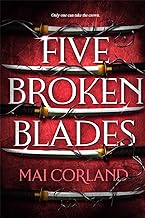Throughout the story, readers may notice that the characters are often eating and for her, incorporating food into her storytelling often provided more details about the characters and their surroundings than just the words on a page. She says, “Food’s very important to me… Food says a lot. Food says a lot about a world. It says a lot about the status of someone. It says a lot about commerce and how things are getting from one location to another, what the rich eat versus what the poor eat. You’ve got kids foraging for edibles in a meadow… you have the regionality coming into play of what a meal in Umbria looks like versus what it looks like in Tamneki… I think you can accomplish a lot of world building in just having your character sit down for meals.”
Although Corland’s ambition growing up wasn’t to pursue writing, she always did some form of writing whether it was through journaling or creating short novellas. It wasn’t until her stepfather was dying that she decided she wanted her life to be spent focusing on things she really wanted to do. “What’s the worst that happens? You get rejected, you can’t do it? Well, it’s better than never trying.” Even the time she spent writing pieces that were never published was still invaluable. “Everything is a learning experience. Everything’s a step… There are no wasted words. Everything makes you better at your craft.”

It is very much in the mystery genre… you have to have breadcrumbs. If it comes out of absolutely nowhere, I don’t think that you laid a good enough groundwork then. It shouldn’t be something a reader can’t foresee at all.”


The gift of fantasy has meant more to me than my talent for absorbing positive knowledge.”

Podcast: Play in new window | Download
Subscribe: RSS

Want to join the discussion?
Feel free to contribute!